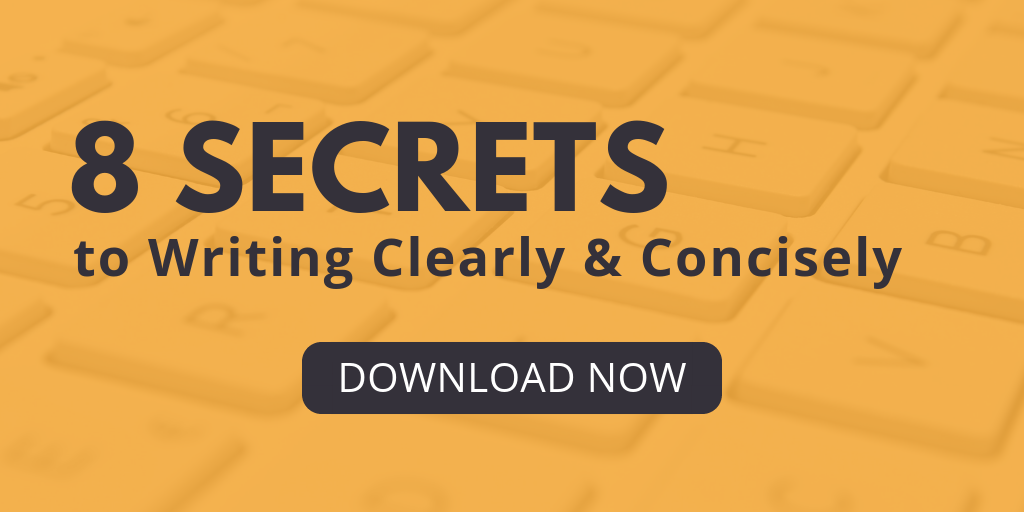Transition words are often a sign of disjointed and clunky writing. They’re attempts to create flow where none exists. Our impulse to insert overused and artificial transitions is no surprise: We learned to use them in grade school before we could recognize and reproduce higher elements of good writing. My English teachers loved transitions. I remember doing worksheets on them and writing papers where I was specifically instructed to use transitional words and phrases at the beginning of every sentence. If I did that now, my editors would ask if I was feeling okay.
Transition words can help the reader—but it’s really the writer who needs help. A good editor will help writers see how to re-organize, revise, and edit their work for better flow and natural transitions. Skip the clunky signal words and write something shorter and clearer. Your readers will appreciate it.
Challenge Your Transition Words
Try it on your own work. Pull up your most recent document and see if you’ve used these eight transitions. Consider how you could revise to shorten them for clarity and flow—or whether you need them at all.
1. Therefore
“Therefore” is an example of an artificial transition, meaning it just interrupts our writing to tell our readers we have more to say. They know that; that’s why there are more words left on the page. Remove it and leave the rest of your sentence alone (unless it’s wordy, too ).
2. Thus
You might have cause to use “thus.” If I argued otherwise, I’d be going against WordRake founder Gary Kinder, who’s used “thus” in his writing tips. It should be used sparingly, however, especially because you can often replace it with “so.”
3. Hence
“Hence” is a little like “thus,” but it sounds snootier. Show you’re intelligent by making your point with precise language that shows readers you know what you’re doing, not with unnecessarily “fancy”-sounding words like “hence.”
4. As a result
Even if you’re discussing complicated topics, your writing should be simple, direct, and logical. Using “as a result” signals to your reader you aren’t sure if your argument stands on its own without additional guidance from filler transitions.
5. So
Sometimes, we need “so”; I just advocated for its use over “thus.” It’s a succinct transition that can help us make our arguments flow. But like any transition (including “but”), we should use it only when necessary. It saves space to replace a longwinded transition with something shorter, but it’s even more concise to forego a transition altogether.
6. Then
Unless otherwise noted, your readers assume you’re writing about events in chronological order. Adding “then” just makes them wonder if that assumption is incorrect.
7. Consequently
“Consequently” is another example of an artificial transition. Your writing should be logical enough that your reader understands you without using transitions like “consequently” and “moreover.” WordRake recognizes this, too, and suggests cutting “consequently” every time you use it to start a sentence.
8. Because
You don’t always need to remove because, but frequently you could use a more precise word, such as “citing,” or rephrase the sentence to be more succinct, since “because” is often surrounded by wordiness. For example, “Because of his tardiness, Brian received a verbal warning” would be clearer and shorter as “Brian received a verbal warning for tardiness.”
Check for More Unnecessary Words
When reviewing your work, look for transitions. Try substituting an unnecessarily long or complicated transition with a shorter one or removing the transition completely.
If you need an editor to help break your attachment to transitions, try WordRake. It removes or rewords several transitions mentioned in this piece, plus other often needless words like “furthermore” and “currently.” Try it free for seven days.
About the Author
Caroline Engle is WordRake’s Marketing Communications Specialist. She convinced WordRake to hire her as an intern after placing in editing competitions and writing a novel in a month. When she isn’t editing or writing copy, coordinating conference logistics, or helping improve WordRake’s functionality, she’s reading, going on ten-mile walks, or looking up flight prices. Connect with her on LinkedIn here.








